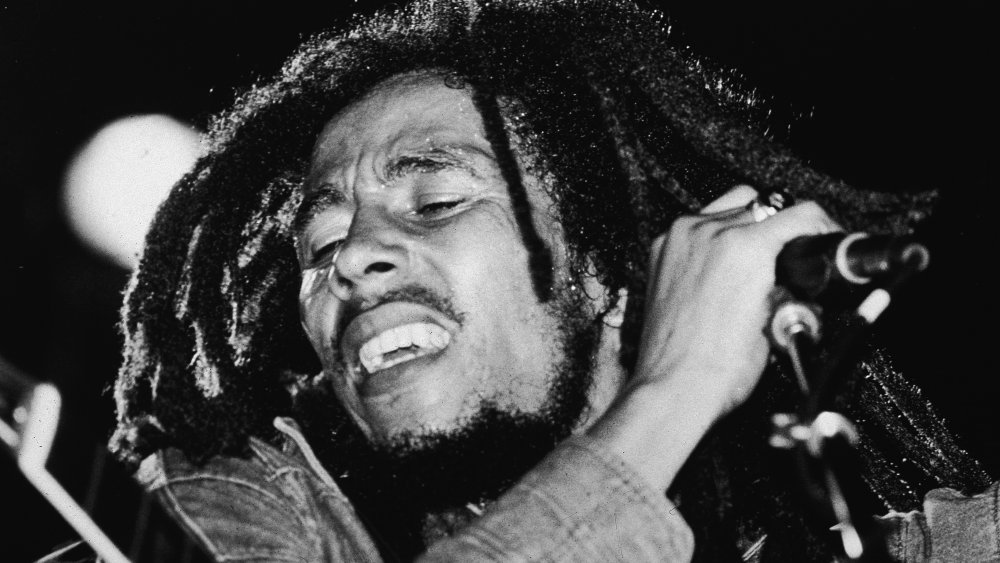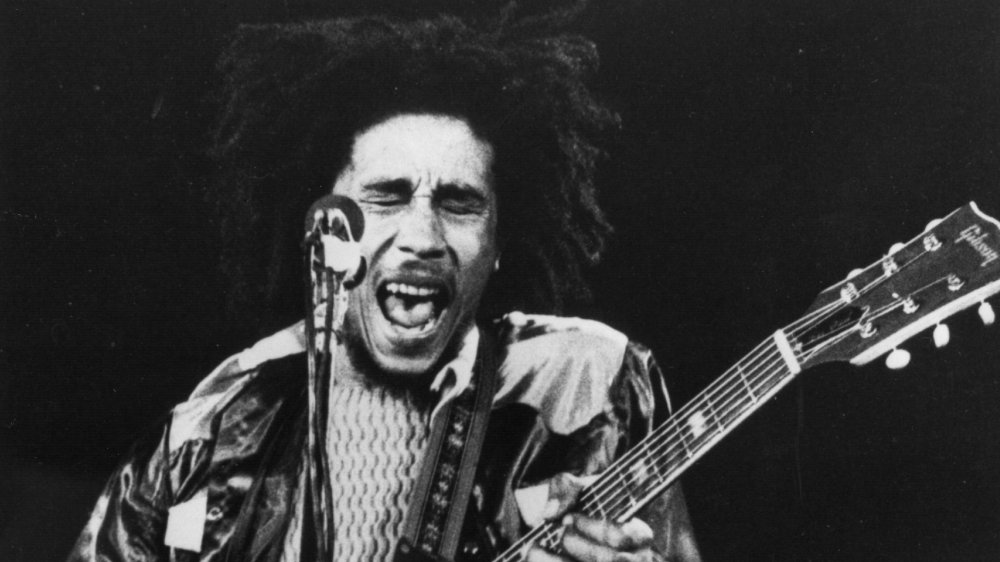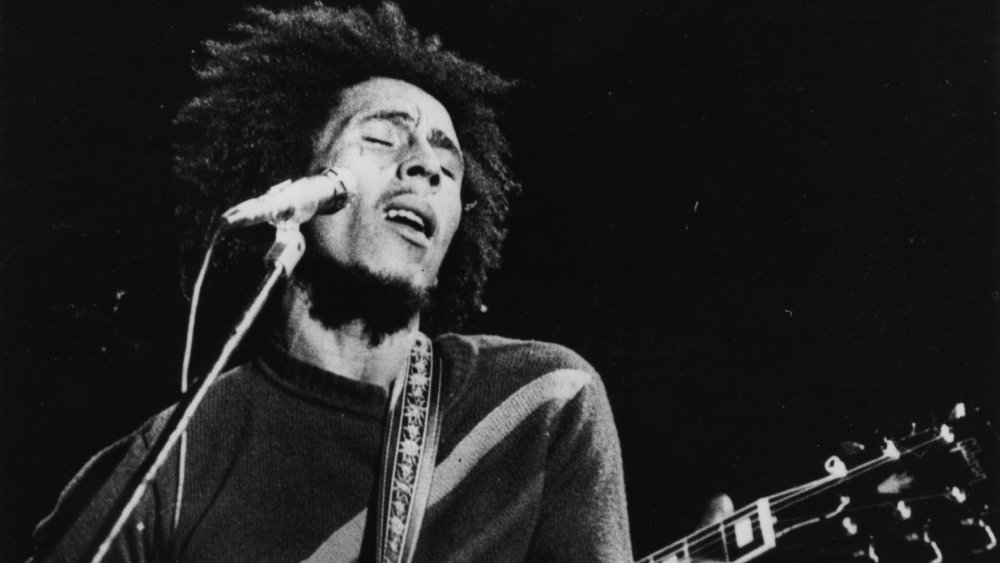The Truth About Bob Marley's Death
The ground is full of musicians who died suspiciously, icons whose demises inspired conspiracy theories geared at filling gaps information, making a narrative more becoming of a beloved artist, and maybe painting mortality as a little more predictable than it actually is. Bob Marley wasn't one of them. His death from cancer in 1981 was months, arguably years, in the making. Doctors had detected the threat and suggested a remedy that may have prevented a depressing end. Marley said no. Not because he wanted to die that way but because of how he chose to live.
The roots of musical revolution
Bob Marley sang his life on stage and enriched the lives of millions. To quote Rolling Stone, "Marley wasn't singing about how peace could come easily to the world but rather about how hell on earth comes too easily to too many." His native Jamaica had endured centuries of slavery and subjugation. Per the National Library of Jamaica, between 1533 and 1807, an estimated 600,000 enslaved Africans were taken to Jamaica. Marley's maternal roots grew from the Cromantee tribe, which mounted Jamaica's "bloodiest" slave revolts, according to Rolling Stone. Marley's father was a white naval officer who worked as a superintendent of lands for the British.
When Marley was born in 1945, Jamaica had yet to gain its independence from Britain and wouldn't for another 17 years. His interracial heritage was taboo, and his father, who the BBC says was described as "a neurotic type of man" and a self-admitted bedwetter in a medical report, abandoned Marley's mother after the singer's birth. On the rare occasions when Marley remarked on his absentee father, he typically did so with disdain. He died when Marley was 10.
While Marley seldom discussed his father directly, his music challenged the system of oppression and racism implemented by Britain and other imperial powers that ravaged Africa. He told people to get up, stand up for their rights. He also embraced Rastafarianism, which, as Smithsonian notes, was inspired by a biblical passage that gave enslaved Africans hope that they would one day be liberated.
Marley standing up for what he believed in
Rastafarians didn't cut their hair, and as Bob Marley would later say, "Rasta no abide amputation." This may have proved fatal for Marley, who was advised by doctors to have a potentially cancerous toe removed in 1977. The most Marley would abide was a skin graft, which, sadly, didn't prevent him from developing cancer. While performing at Madison Square Garden in September 1980, he nearly fainted on stage. The next day his body buckled as he was jogging. Doctors discovered that the cancer had metastasized and infected his lungs, liver, and brain. He died in May 1981.


